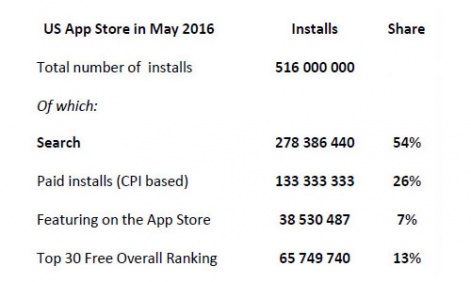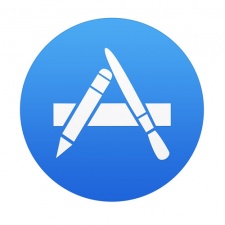Depending on who you talk to, Apple's introduction of Paid Search on the App Store in iOS 10 is the end of an open app ecosystem or a measure approach to the issues of discoverability.
Somewhere inbetween sit app store intelligence outfit Priori Data and marketing agency Pocket Whale.
They've come up with some interesting analysis of how the App Store currently works.
Current flow
It's not 100% clear how they generated their numbers but by tracking the flow of installs on the US App Store for May 2016, they conclude that search is already the #1 source of installs.
Indeed, they reckon the much-loved App Store featuring only accounts for 7% of installs.

Digging deeper into what people are searching for, the research suggests that 70% of App Store search uses branded keywords.
An example used is people search for 'Uber' not 'taxi'.
70% of App Store search uses branded keywords.
On this basis, the companies predict that when Paid Search is introduced there will be locked in advantages for the companies who already control keywords.
"If a user explicitly searches for 'Uber' and sees a paid 'Lyft' result, will they be likely to install 'Lyft'," they question of the rival taxi services.
To be announced
In this way, they conclude that for developers looking to improve discoverability in the App Store, "the results are clear... the main focus should be building a brand through PR, TV, influencers and viral marketing".
Of course, how Paid Search will actually work is as yet unclear, although Apple has been clear that there will be strong curation of results to ensure that it is a level playfield.






















